Theory and Modelling
The Computational Chemistry Group at the University of Nottingham shares extensive expertise in a wide range of modern computational techniques and develops new and bespoke methods. The expertise of the group extends from QSAR and cheminformatics to molecular dynamics and ab initio quantum chemistry methods. The Computational Chemistry Group maintains a diverse portfolio of collaborations within academia, as well as with commercial partners.
Areas of expertise:
Virtual Screening and Docking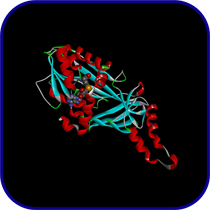
- Applications: Receptor-ligand interactions
- Libraries: ZINC; Nottingham Drug-Like Compound Library (50 000 compounds)
- Facilities: Nottingham HPC (2700 cores); MidPlus HPC (6000 cores)
- Examples: Antimicrobial peptides
- Recent Publications: Biochemistry 49, 9594 (2010); J. Cheminf. 3, 49 (2011); Biochemistry 52, 4723 (2013)
Molecular Dynamics
- Developments: Accelerating calculation of electrostatic interactions and free energy calculations on GPU
- Applications: Protein-ligand binding studies; Enhancing virtual screening results; Polymer solubility
- Examples: Allostery and cooperativity in protein-ligand binding
- Recent Publications: Biochemistry 49, 9594 (2010); Biochemistry 52, 4723 (2013)
Phase Behaviour Modelling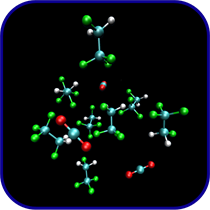
- Developments: Computation of phase diagrams
- Methodology: Monte Carlo
- Applications: Phase transition properties of binary mixtures
- Examples: Carbon dioxide – methane and – tetrafluoroethane mixtures
- Recent Publications: Phys. Chem. Chem. Phys. 13, 15708 (2011); J. Phys. Chem. B 116, 4535 (2012)
Spectroscopy
- Developments: Accelerating vibrational frequencies calculation; Q-Chem software package; DFT functionals for X-Ray spectroscopy
- Properties: UV/Visible, IR, X-Ray, and circular dichroism spectroscopy; Solvent effects
- Methodology: DFT; ab initio; MD; QM/MM
- Examples: Proteins; Membranes; Carbon structures; Weakly-bound complexes; Molecules on surfaces
- Recent Publications: Faraday Discussions 148, 55 (2011); J. Phys. Chem. B 115, 4160 (2011); ibid. 115, 5526 (2011); ibid. 117, 8105 (2013)
Magnetic Properties Modelling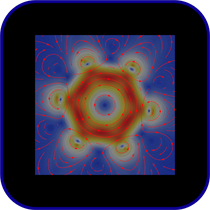
- Developments: Current-DFT; London program package
- Applications: NMR parameters; Molecules in strong magnetic fields; Charge and spin transport in materials
- Recent Publications: J. Chem. Phys. 131, 144104 (2009); J. Phys. Chem. A 114, 7179 (2010)
Electrostatic Interactions at the Nanoscale
- Developments: An analytical model based on Coulomb interactions
- Applications: Like-charged particles attraction; Colloidal particles; Liquid droplets; Fullerenes
- Recent Publications: J. Chem. Phys. 133, 024105 (2010); J. Colloid Interface Sci. 354, 417 (2011); J. Phys. Chem. A 117, 3877 (2013)
Metal-Organic Frameworks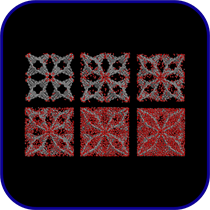
- Properties: Structure; Gas sorption; Gas separation; Chemical sensing
- Methodology: Molecular Dynamics (MD); Grand-Canonical Monte Carlo; Density Functional Theory (DFT); ab initio
- Examples of MOFs: NOTT‒220, NOTT‒122, NOTT‒125
- Recent Publications: Nature Materials 11, 710 (2012); Chemical Science 3, 2993 (2012); Chemical Science 4, 1731 (2013)
QSAR
- Developments: Novel topological descriptors
- Applications:Ligand-receptor studies; Polymer solubility
- Examples: Activity in Rh-catalyzed hydroformylation; Inhibition of angiotensin converting enzyme and dihydrofolate reductase
- Recent Publications: J. Chem. Inf. Mod. 47, 626 (2007); J. Cheminf. 1, 22 (2009)
Nanocomposites Modelling 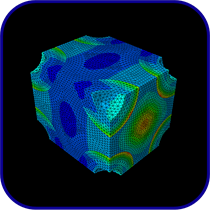
- Applications: High performance and lightweight nanocomposites; Lightweight armour; Materials for aerospace industry
- Methodology: Multiscale modelling of shock absorption; DFT; Finite element analysis
- Recent Publications: Phys. Rev. B 86, 104111 (2012); Compos. Struct. 96, 601 (2013)